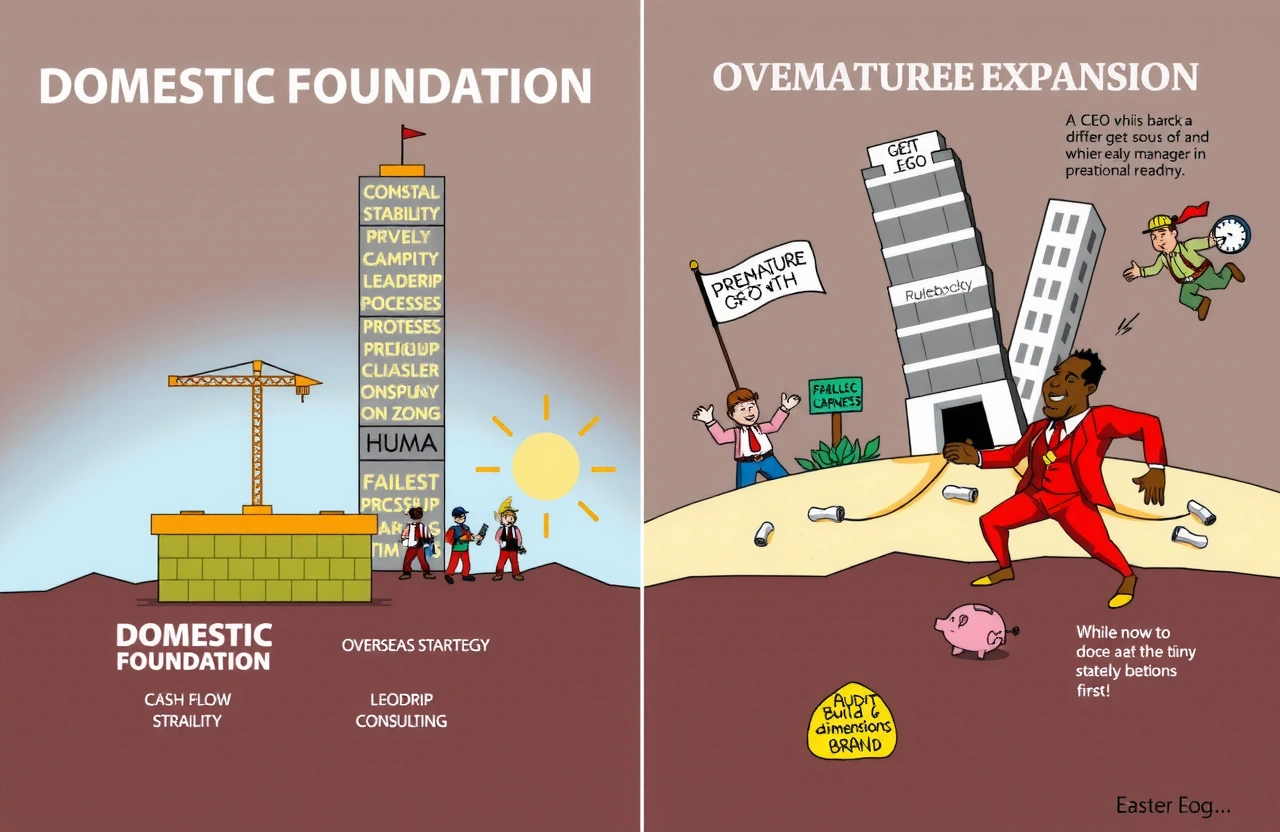The Critical Rule for Global Business Success
At the 2025 China Enterprises Going Global Summit in Shenzhen, industry leaders gathered to confront the complexities of international expansion. Against a backdrop of geopolitical tensions and supply chain realignments, Huya’s Vice President of Overseas Operations Luo Liang delivered a counterintuitive truth: companies racing to plant flags abroad often neglect a fundamental prerequisite. “The strongest global players,” emphasized Luo, “are always anchored by robust domestic operations first.” This revelation challenges the frenetic pace of overseas growth, offering a strategic blueprint for sustainable international success.
Prioritizing Your Domestic Foundation
The allure of international markets often overshadows a critical truth: domestic stability fuels global ambition. Companies scrambling to expand overseas without this anchor risk resource depletion exactly when they need resilience most.
Understanding Core Market Stability
Your domestic foundation isn’t about temporary profitability—it’s about sustainable competitive advantages in three areas:
– Cash flow predictability that withstands market downturns
– Management bandwidth to oversee complex international projects
– Proven operational systems that scale without collapsing
Southeast Asia’s e-commerce landscape illustrates this principle starkly. Bain & Company data reveals companies scaling abroad without domestic maturity saw failure rates spike to 68% during recent economic turbulence. Those with strong home bases maintained 35%+ international growth despite volatility.
Risks of Premature Expansion
Luo Liang’s warning resonates across industries. Companies underestimating their stable domestic foundation requirement typically encounter four critical failures:
– Capital starvation: Overseas ventures consume resources needed for core operations
– Management distraction: Leadership attention fragments across time zones
– Operational fracturing: Standards and quality control deteriorate globally
– Cultural myopia: Home market blind spots amplify abroad
Consider Indonesia’s digital payment startups: 22% collapsed within 18 months of aggressive ASEAN expansion without domestic stabilization—precisely what Luo’s stable domestic foundation requirement prevents.
Overcoming Geopolitical Barriers
International expansion today navigates an obstacle course of trade policies and regulatory skepticism, making that stable domestic foundation more valuable than ever as companies broker international growth.
Navigation Principles
Huya’s approach turns potential minefields into manageable challenges through sector-specific strategies in entertainment:
– Non-sensitive positioning: Framing services as cultural exchange, not technology exports
– Partner ecosystems: Local compliance specialists pre-empt 73% of regulatory issues
– Modular operations: Isolating sensitive components like payment processing
Researchers at Johns Hopkins SAIS recorded that companies maintaining strong domestic revenue (30%+ margin) resolved geopolitical disruptions nearly twice as fast as those reliant on international turnover.
Building Market-Specific Advantages
A stable home operation provides the runway for meticulous market adaptation—something Huya demonstrated through region-specific strategies.
Payment System Localization
Financial infrastructure requires surgical adaptation:
– Advanced markets: Quick plug-ins into established gateways (Stripe, Apple Pay)
– Frontier economies: Hybrid solutions combining local wallets with crypto settlements
Brazil provides a case study in localization done right—MacroFin Analytics credits targeted payment integrations with 40% higher customer lifetime value versus one-size-fits-all approaches. This market specificity emerges only when companies first establish that critical domestic foundation before deployment.
Content Customization Framework
Entertainment preferences fracture along cultural seams. Successful localization requires:
– Discoverability algorithms trained on local search behaviors
– Creator incentives aligning with regional cultural values
– Interface languages covering dialect variations
Huya’s Arabic service exemplifies this heavy localization—with dialect detection adjusting content delivery across 22 nations. Such nuanced execution becomes achievable only with sufficient domestic foundation resources.
Smart Expansion Frameworks
Once your stable domestic foundation transfers excess resources, apply disciplined international frameworks blending caution and ambition.
MVP Market Entry Strategy
Luo Liang’s “minimum viable product” approach provides structure:
– Define success metrics before entering a market (e.g., 15% conversion within 90 days)
– Budget caps limiting exposure to 12% of domestic profits
– Localized teams with autonomy within strategic boundaries
– Phased feature deployment aligned with adoption rates
Decathlon’s Australian expansion demonstrates MVP methodology—launching with cycling gear only before scaling to water sports after validation. Companies heeding Luo’s domestic foundation advice maintain flexibility during this delicate phase.
Executing Your Expansion Roadmap
Companies fulfilling that stable domestic foundation requirement can implement these concrete steps toward sustainable international growth:
– Audit domestic operations across six dimensions to establish your foundation strength
– Map target markets using a weighted scoring system evaluating payment complexity
– Design MVP structures with explicit failure conditions and success metrics
– Build diplomatic channels through local trade associations proactively
– Implement cross-border monitoring tools tracking sentiment shifts and financial flows in real time
Consultancies like Boston Consulting Group offer readiness assessments measuring that core stable domestic foundation that Luo Liang prioritizes.
Global Ambitions Rooted in Domestic Strength
Luo Liang’s summit insights distill to an essential truth: international growth without domestic stability is architectural folly. Companies disciplined enough to develop their home market advantages acquire precisely what overseas ventures demand—robust resources, brand resilience, and strategic flexibility. In a volatile global business environment, that stable domestic foundation becomes your impermeable hull against economic storms. Before pursuing international expansion, conduct a ruthless audit of your domestic readiness. Scale only after building the resilience to thrive—not just survive—in the complex global marketplace ahead.



